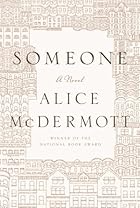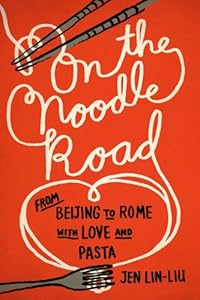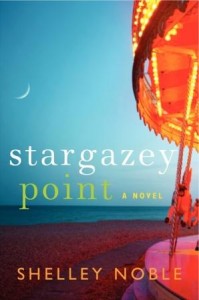Georgia Quillian is married to Graham. They met when Georgia, who suffers from insomnia, went to a sleep clinic for help with her condition. Graham was also in "Detention" at the sleep clinic only his problem was parasomnia, which goes far beyond insomnia. And so these two people who could not sleep slowly created a life together. Georgia started a college counseling business and Graham was a professor at Northwestern. They lived in his family's cottage on a lake outside of Chicago and eventually Georgia gave birth to son Frankie. But life was not rosy. Graham's condition did not improve. Georgia's business was failing. Her mother died of cancer. Three year old Frankie stopped speaking. And then something happened with Graham because of the parasomnia, an incident so large that it made the papers and guaranteed that he'd never get tenure, pushing him out of his job. So when he is offered another job tracking weather patterns with a scientific institute in Miami, Georgia's hometown, the family pulls up stakes to go. If they're not entirely optimistic about the move, they are at least slightly hopeful that this will be a new start.
Not wanting to actually move into the house with Georgia's father, a professional musician, and her kind, motherly stepmother, Georgia and Graham buy a small, shabby houseboat and dock it at Harvey and Lidia's, giving them the illusion of their own space. But Georgia finds she is at loose ends on the tiny Lullaby so when Lidia suggests that she run errands and become a sort of personal assistant to a reclusive artist who lives out at Stiltsville, Georgia agrees. The professionally successful Charlie, whose wife was a friend of Georgia's late mother and also of her stepmother, draws amazingly intricate line drawings of sea animals. He's banished himself to Stiltsville to stay away from people but he develops a deep and real bond with the selectively mute Frankie and eventually with Georgia as well.
Meanwhile Graham has left on a ship that will be out in Hurricane Alley for weeks tracking weather conditions, leaving Georgia and Frankie behind. And it is only when he is gone that Georgia and Frankie's doctors start to get to the bottom of what has caused Frankie's complete and total silence. This revelation is a gathering storm in Georgia's life, as is her growing attachment to Charlie and her looming decision about Frankie's and her future. Mirroring the inner emotional turmoil and tension is the rising development of Hurricane Andrew far out in the ocean. Both storms will lead to terrible devastation and change Georgia's life forever.
Narrated by Georgia so that everything is from her perspective, the novel jumps from present back to Georgia's past, what made her who she is, and her understanding, as far as she she's able to understand it, of Graham's past and the demons there. Her unspooling of the past also shows her feelings about her parents, how she wants to be as a parent herself, and where she finds Graham's inattentiveness with Frankie frustrating. Daniel has done a good job capturing Georgia's worries, insecurities, and her guilt over any dangers, real or imagined, to which she has exposed Frankie. Her depiction of a mother's all consuming love, the way that the mother of a small child fits the rest of her life around the existence of that one little person, and the way that a marriage already straining can come apart at the seams because of a love and loyalty to the result of that marriage are all spot on. The narrative pacing is deceptively slow with an almost imperceptibly rising tension that culminates in lashing after lashing of breaking storms. The characters are not perfect and they make mistakes but aside from Graham, who is somehow unknowable despite all of Georgia's explanations about him, they are very real and human. There are some gut wrenching moments here and a well done picture of motherly love and protectiveness and all its flaws as well. Sea Creatures is a novel of marriage and motherhood, love and what we owe family, an emotional novel about the choices we make, the compromises we can live with, and what brings us to the breaking point.
For more information about Susanna Daniel and the book, check out her website, Facebook page, or follow her on Twitter. Follow the rest of the blog tour or look at the amazon reviews for others' thoughts and opinions on the book.
 Thanks to Trish from TLC Book Tours and the publisher for sending me a copy of this book to review.
Thanks to Trish from TLC Book Tours and the publisher for sending me a copy of this book to review.


































